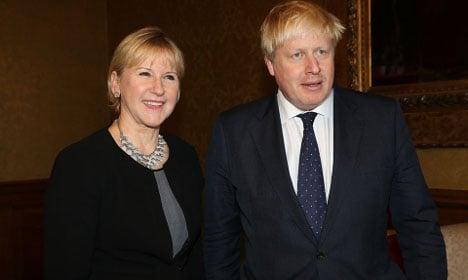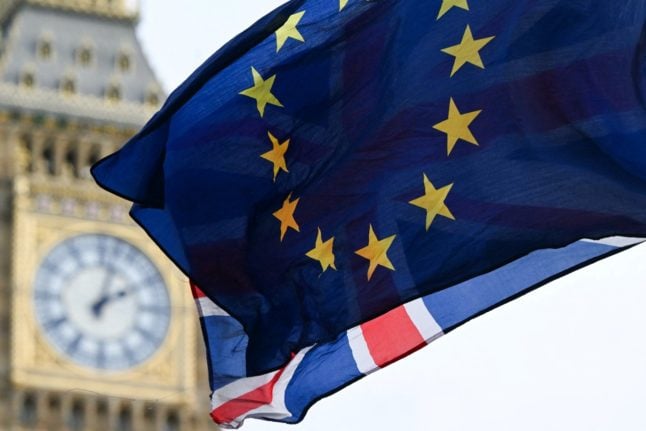Wallström travelled to London to meet Johnson on Wednesday, and the subject of Brexit dominated the talks.
“This is going to be a pretty difficult time for them,” she told Swedish news agency TT after the meeting.
“They know very well that we regret the outcome of the referendum, but we respect that the British people have spoken, and this is going to happen in the future. We will want to see them formulate what they want as quickly as possible, and that this process doesn’t take longer than necessary. But at the same time, it has been somewhat chaotic, and they need some time to sort out their own wishes and thoughts around it,” she added.
The Swedish government made no secret of the fact that it wanted the UK to remain in the EU in the build up to the Brexit vote last June. In an opinion piece published in English by The Local in May, Wallström argued that “a united Europe benefits both Britain and Sweden”.
The UK voted to leave however, and the appointment of Johnson as Foreign Secretary was a left-field one. The pro-Brexit campaigner is known for his colourful record when interacting with people from other cultures, but Wallström had polite words to say about him following their meeting:
“He is easy to talk to. He is easy-going, approachable and open and has a sense of humour, and that always helps when you are speaking with colleagues.”
Congratulated Swedish FM @margotwallstrom on #Sweden's #UNSC membership. Look forward to working on @UN_Women, peace & security agenda pic.twitter.com/dCi6M3KjKu
— Boris Johnson (@BorisJohnson) 16 November 2016
The two politicians also spoke about US President-elect Donald Trump, and on that subject they had differences in opinion.
“I think Boris Johnson’s view is that we must let Trump show what he can do and that you don’t need to think the worst. I’m maybe a bit more cynical, I think you also actually have to judge the man on what he has said, and we must be prepared and have a good plan. He has to show in practice what his policies will entail,” Wallström concluded.
Along with Brexit and the US, climate change and European security and trade policy were also on the agenda in London.



 Please whitelist us to continue reading.
Please whitelist us to continue reading.